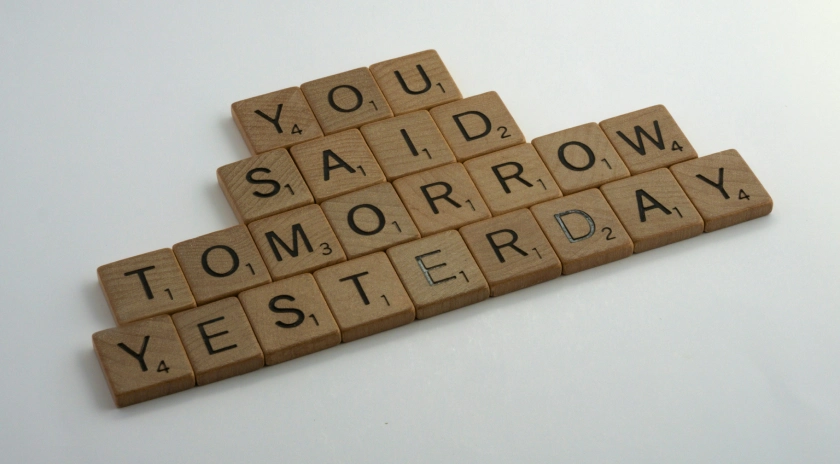Five tips to finally stop procrastinating at work
test

test
test 2
How to stop procrastinating for good: 5 proven strategies that really work
Procrastination - the habit of postponing tasks we find unpleasant - affects many of us. For some people, this tendency to put things off can become a serious problem in their daily lives. Procrastinators often find themselves overwhelmed by a growing list of unfinished tasks, which eventually forces them to work under pressure and in a rush.
This cycle can lead to anxiety, guilt, and even shame, all of which can seriously damage productivity. Chronic procrastination also comes with the risk of missing out on valuable career opportunities and can harm relationships with colleagues due to a lack of reliability.
If this sounds like you and you’re ready to stop procrastinating for good (maybe it’s even one of your new year’s resolutions), here are five practical tips that can really help.
Procrastination: the perfect moment doesn’t exist
The hardest part is simply getting started. Procrastinators often find excuses to delay their tasks: they’re too tired, they’ll have more time tomorrow, something else seems more urgent, and so on. The truth is, the perfect moment never comes. There will always be a reason to put things off.
Unfortunately, the longer you wait, the more likely you are to feel overwhelmed and fall behind. So stop waiting for the "right" time—start now.
The to-do list: your best anti-procrastination ally
Some people love them, others hate them—but whether you do it daily or weekly, writing a to-do list is a powerful way to set clear goals and actually achieve them. However, simply listing your tasks isn’t enough. You need to break them down in detail, set deadlines, and rank them by priority. Each task should be specific enough that you immediately know what needs to be done without overthinking.
The goal of your to-do list isn’t to stress you out or make you feel scattered, so keep it simple: focus on one to three priority tasks per day. This approach helps you move quickly from planning to action and reduces frustration. Plus, checking off completed tasks is incredibly satisfying!
Break down your tasks and start small
As mentioned earlier, the hardest part is often taking the first step. The more complicated a task seems, the more likely we are to avoid it. On the other hand, the simpler it feels, the easier it is to get started and make progress.
To prevent yourself from getting stuck before you even begin, start small. Break big projects into manageable sub-tasks to make them less intimidating and more achievable. A good method is to work backwards from your end goal and split it into small, actionable steps. Each little task you complete will bring you one step closer to success.
Find the positive side of your tasks
Fear of failure, lack of interest or motivation, and stress are often the root causes of procrastination. It’s not always about laziness or poor organization! Naturally, we’re less likely to tackle a task that feels boring or unpleasant compared to one that brings us joy.
If you’re dealing with a task you dislike, try to find something positive about it. Maybe you’ll get to work with teammates you enjoy, learn something new, or develop valuable skills.
If that’s not enough to motivate you, think about how good you’ll feel once the task is done—relieved, satisfied, and less stressed. Some people also like to reward themselves once they’ve completed a difficult task (a piece of chocolate, a coffee break, a quick walk, etc.). Find what works best for you!
Limit distractions and plan ahead
Email notifications, smartphone alerts, social media, or even colleagues inviting you for a coffee break when you’re on a tight deadline—distractions are everywhere, especially when you’re facing an unpleasant task.
To stay focused, plan ahead and remove as many temptations as possible. Turn your phone face down or leave it in your coat pocket, close unnecessary browser tabs or email windows, and prepare in advance how you’ll politely decline interruptions. Anticipating these moments helps you stay in control and handle distractions more effectively.
